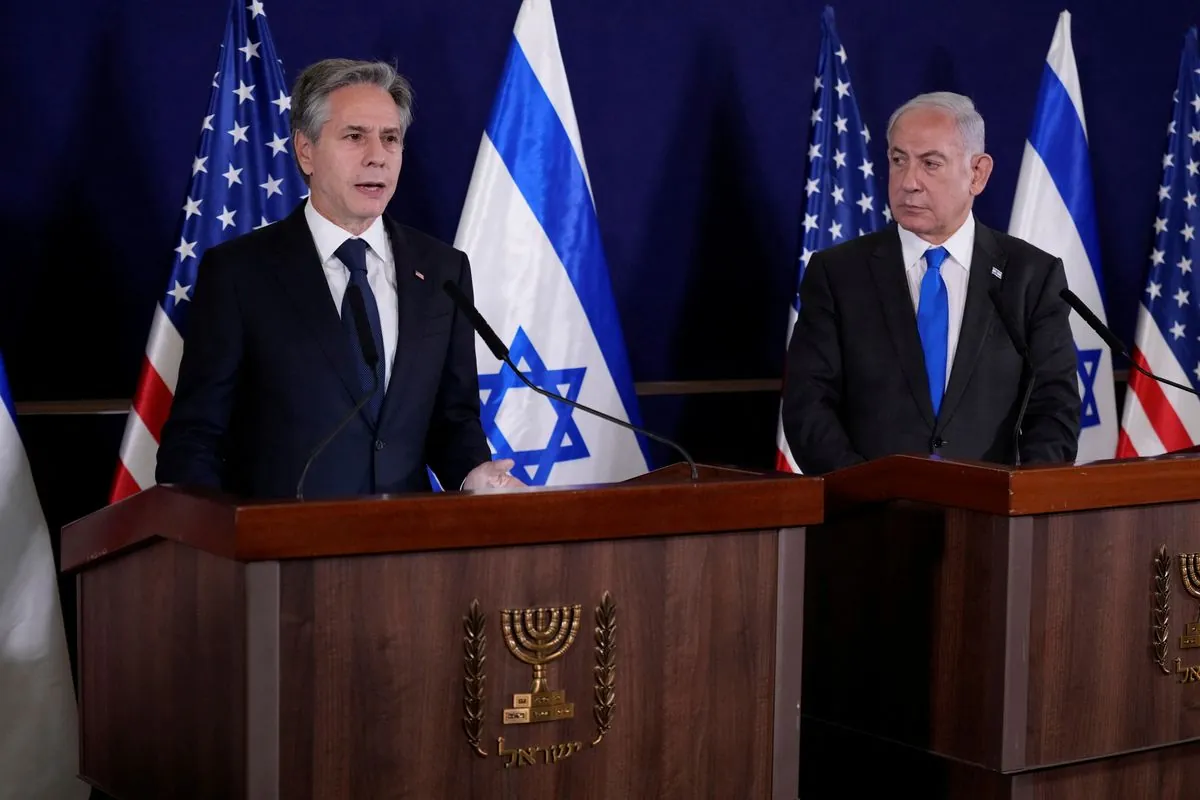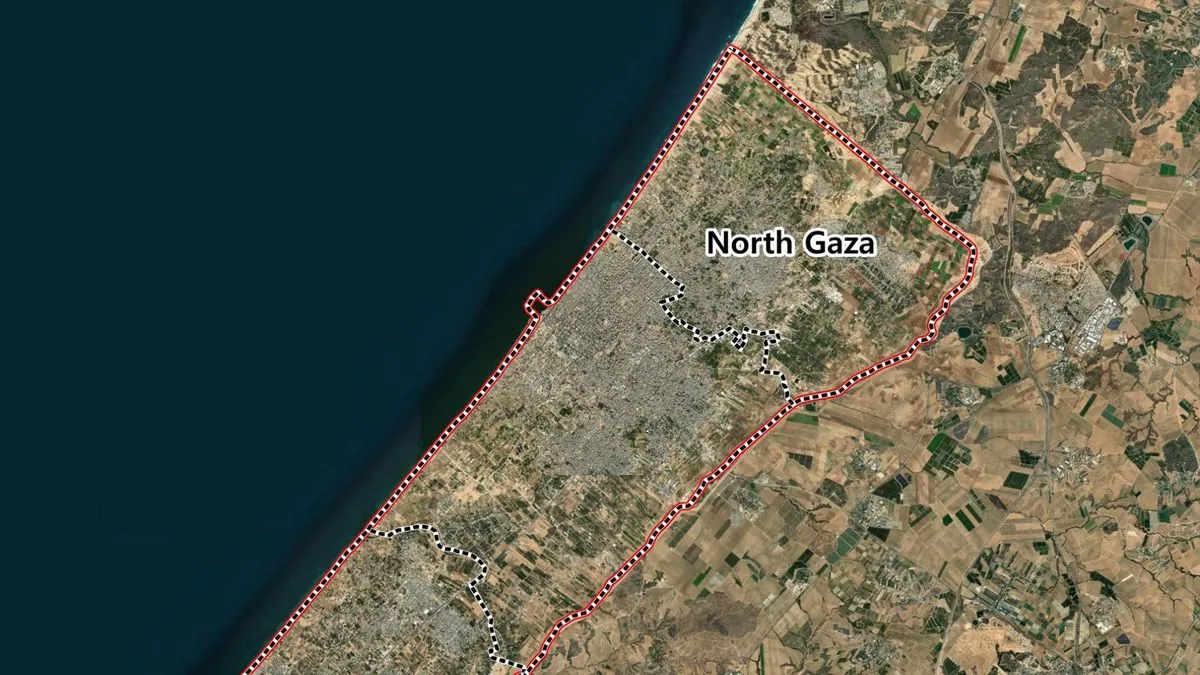US Refutes Netanyahu's Claim on Convincing Blinken About Gaza Border Control
US officials dispute Israeli PM Netanyahu's assertion of persuading Secretary Blinken on maintaining troops along Gaza-Egypt border, emphasizing focus on ceasefire negotiations.

The United States has challenged a statement attributed to Benjamin Netanyahu, the Israeli Prime Minister, regarding discussions with US Secretary of State Antony Blinken about maintaining Israeli troops along the Gaza-Egypt border. This dispute emerged on August 20, 2024, following a reported meeting between the two officials the previous day.
According to an Axios journalist's social media post, Netanyahu allegedly told a gathering that Israel would not withdraw its forces from the Philadelphi corridor, a strategic strip between Gaza and Egypt. The Israeli leader reportedly claimed he might have convinced Blinken on this matter during their recent meeting.
The Philadelphi corridor, a 14-kilometer-long and 100-meter-wide strip, has been a focal point of regional security concerns since Israel's 2005 disengagement from Gaza. Established as part of the 1979 Israel-Egypt Peace Treaty, this area has been associated with smuggling activities and has been subject to various control measures by both Israeli and Egyptian authorities.
However, a senior US administration official, speaking en route to Doha, firmly refuted Netanyahu's assertion. The official stated:
"The only thing Secretary Blinken and the United States are convinced of is the need for getting a ceasefire proposal across the finish line."
The US representative further criticized Netanyahu's reported statement, describing it as unconstructive for ongoing ceasefire negotiations. They emphasized that such "maximalist statements" could hinder the progress of technical discussions aimed at implementing a ceasefire agreement.
This disagreement highlights the complex dynamics surrounding the Gaza situation. The Philadelphi corridor, named after a British World War I operation, has been a point of contention in various peace negotiations. Its status remains a critical issue in regional security and diplomacy, with Israel expressing concerns about potential weapons smuggling through the area.

The corridor's significance extends beyond its immediate security implications. It houses the Rafah Border Crossing, the primary point of transit between Gaza and Egypt. In recent years, Egypt has taken measures to secure its side of the border, including establishing a buffer zone and periodically flooding smuggling tunnels.
As ceasefire talks continue, the international community remains focused on finding a resolution that addresses security concerns while working towards lasting peace in the region. The US stance emphasizes the priority of achieving a ceasefire, underscoring the delicate balance required in navigating the complex geopolitical landscape of the Middle East.


































